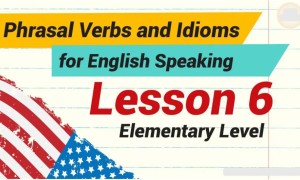- 双语例句
The verb should be in the plural, e . g . " have " in " they have " .
这个动词应用复数形式, 如theyhave中的 have.
《简明英汉词典》
The results confirmed his hypothesis on the use of modal verbs.
结果证实了他的关于情态动词用法的假设.
——《简明英汉词典》
The verb agrees with its subject in number and person.
谓语动词的数和人称与其主语一致.
《简明英汉词典》
" Caught " is an irregular past tense form.
caught是不规则过去时动词.
——《简明英汉词典》
Avoid complex verbal constructions.
避免使用复杂的动词结构。
柯林斯例句
a verb with an irregular conjugation
不规则动词
——《牛津高阶英汉双解词典》
How does this verb conjugate?
这个动词有哪些变化形式?
——期刊摘选
Of all these verbs the verb is the most extensively used.
在这些动词中应用范围最广的是这个动词.
《简明英汉词典》
Verbs that do not take object are called intransitive verbs.
不带宾语的动词称为不及物动词.
《简明英汉词典》
In Polish the verb'to be'takes the instrumental case.
在波兰语中,动词tobe用工具格.
《简明英汉词典》
Modal verbs generally take the bare infinitive.
情态动词通常用不带to的不定式.
《简明英汉词典》
In narrative, the reporting verb is in the past tense.
在叙述过程中, 间接引语的动词通常用过去式.
《简明英汉词典》
The verb is in the subjunctive.
这个动词是虚拟语气。
《牛津高阶英汉双解词典》
In " if I were you " the verb " were " is in the subjunctive.
在 “ IfIwereyou ” 中动词 “ were ” 是虚拟语气.
《简明英汉词典》
The verb " dance " is regular, but the verb " be " is not.
动词 dance 的变化是规则的, 但be的变化是不规则的.
《简明英汉词典》
- 今日热词
- 热门搜索










